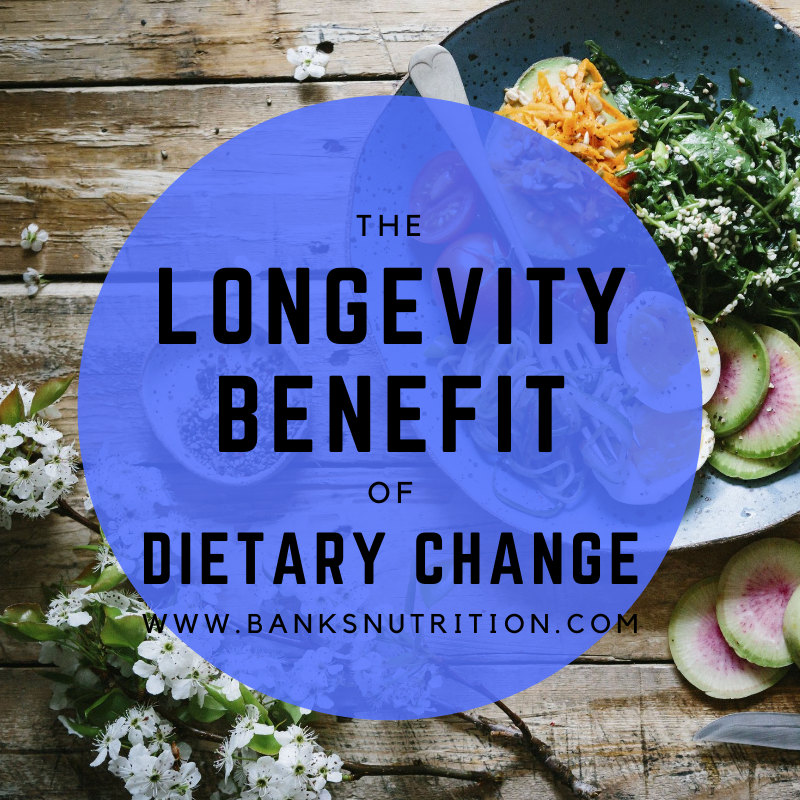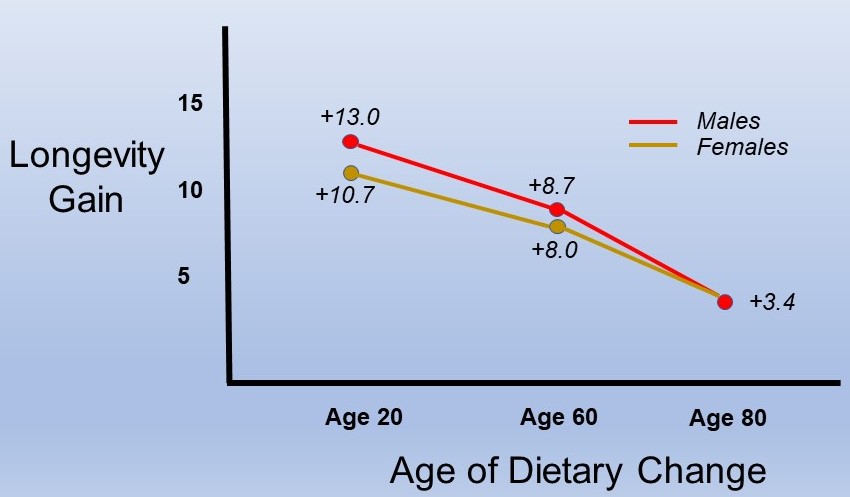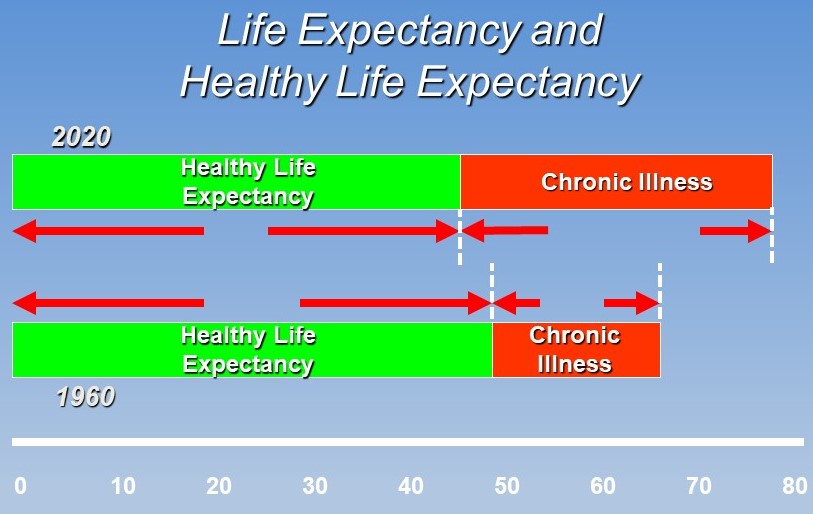
The Longevity Benefit of Dietary Change – It is more than most think
February 10, 2022
A new modeling study that looked at the impact of positive dietary change produced some eye-opening numbers. Much like saving for retirement, dietary benefit compounds over time so the earlier it is started, the more benefit is gained.

The changes examined represent changing from the typical Western diet, or as it is alternatively called, the standard American diet (SAD) to a pattern more like the traditional Mediterranean diet. The noteworthy differences between the Mediterranean diet and the Western diet are increased consumption of legumes, whole grains, nuts and lessor amounts of red and processed meats. Making the change at age 20 projected a striking 10.7 years of additional life expectancy in females and an even greater 13.0 years in males.
The greater gains in males may surprise many. It relates to the lower longevity in males of about 2 years less than females. This is thought to relate generally to poorer health habits of males including diet.
One of the most interesting observations was that beginning dietary change at almost any age still pays dividends but more so beginning at younger ages. The irony of this is if concern about longevity is assessed across age groups, older persons are generally more concerned than younger ones. This is one of life’s ironies.
One of the common practices seen in this type of studies is to try to isolate the individual food changes that account for the total. This likely relates to the perception that more individuals will change one or two dietary factors than will change the entire diet. Again, men gain somewhat more years of longevity compared to females.


No matter where someone is with life, positive dietary change will add to longevity. More importantly, positive dietary change also makes large gains in “healthy longevity” which is defined as the years of life lived without chronic disease. While longevity has improved dramatically from 67.5 years in 1950-1960 to 79.8 years today, the interval of “healthy longevity” has actually decreased somewhat.
Diet does matter and seeing the actual degree to which it does is dramatic. It is all about choices.
Fadnes et al. Estimating impact of food choices on life expectancy: A modeling study. PLOS Medicine, 2022.